Text
Comprehensive Nutritional Facts Of Bananas | Get Healthy Now!

the nutritional facts on bananas
Bananas are one of the most popular fruits in the world and for good reason. They're delicious, easy to eat and cook with and they have some amazing health benefits.
Bananas are high in potassium which helps maintain healthy blood pressure levels by helping control water balance in your body. They also contain vitamin B6 which is important for brain function as well as iron which helps carry oxygen around your body
The nutritional facts provided below will help you understand why bananas are so good for you
Nutritional Profile of Bananas
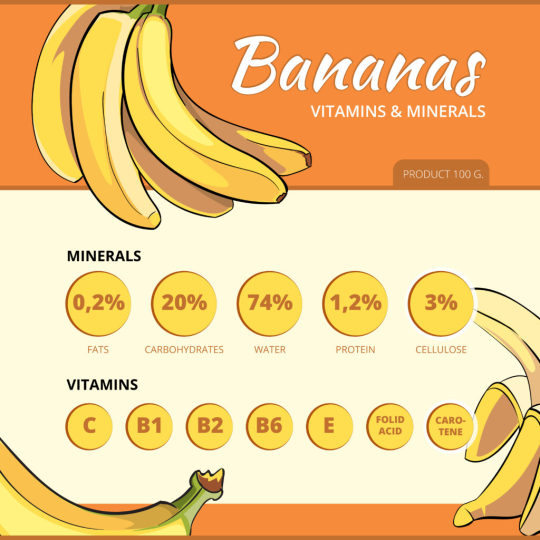
by naturtune
The nutritional profile of bananas is very impressive. They are an excellent source of dietary fiber, vitamin C, and potassium.
Bananas are also rich in carbohydrates, which provide energy to your body. Carbohydrates are broken down into glucose during digestion and absorbed into the bloodstream as blood sugar (glucose). The body uses this glucose for energy or stores it as fat if you eat too many carbs without burning them off through exercise or physical activity.
The amount of carbohydrates in a banana varies depending on its size: small (6 inches long) medium-sized (7 inches long) large ones can contain up to 21 grams per serving!
Health Benefits of Bananas
Bananas are a great source of potassium, which is essential for maintaining healthy blood pressure levels. it can also help you stay hydrated by increasing the amount of water in your body and reducing your risk for dehydration.
Bananas are rich in fiber and can help to prevent constipation because they contain pectin (a type of soluble fiber). They also have a high concentration of magnesium, which helps to relax muscles and soothe nerves--making them ideal for people suffering from anxiety or insomnia. Finally, bananas contain tryptophan--an amino acid that's converted into serotonin when it enters the brain through digestion; this neurotransmitter helps regulate moods by increasing feelings of happiness while decreasing feelings like anger or sadness.
Risks and Considerations
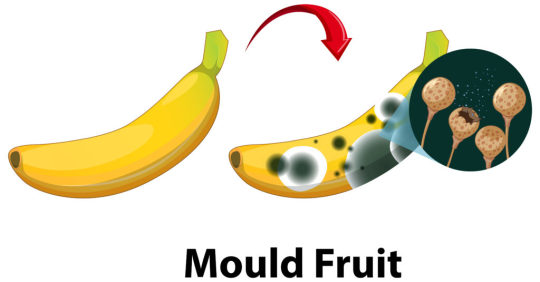
by naturtune
There are some risks and considerations to keep in mind when consuming bananas:
- The high sugar content of bananas is a concern for individuals with diabetes or other health conditions, such as obesity, heart disease, and hypertension. If you have one of these conditions it's important to moderate your intake of bananas so that they don't negatively impact your health.
- Bananas may also cause allergic reactions in some people who are sensitive to latex (the sap from the plant). If you experience symptoms like swelling around the mouth and throat after eating a banana then you might be allergic to latex proteins found within this fruit.
Conclusion
- Bananas are an excellent source of vitamin C, which is important for immune system function and wound healing.
- They also contain potassium, which helps regulate blood pressure by balancing sodium levels in the body.
- Bananas are low in fat and calories but high in fiber, making them a great choice for people who want to lose weight or maintain a healthy weight without feeling hungry all the time!
Thank you for reading this comprehensive article on the nutritional facts of bananas. you found this information helpful and want to learn more about health and wellness, be sure to visit our website naturtune.com.
read also https://naturtune.com/maximize-your-performance-with-the-best-sports-nutrition-advice/
Read the full article
#Fitness#HealthyEating#HealthyLifestyle#Healthyliving#musclebuilding#nutritioneducation#NutritionTips#Organic#Superfoods
0 notes
Text
Maximize Your Performance with the Best Sports Nutrition Advice
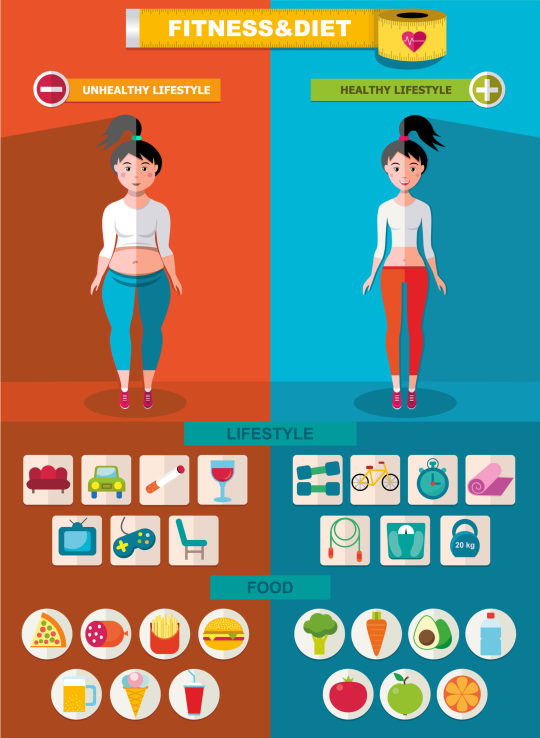
You're a serious athlete, and you know that nutrition is an essential part of your training. But you also know that there are a lot of different opinions out there on what to eat when to eat it and how much of it to eat.
In this article, I'll share with you some of the best sports nutrition advice so that you can maximize your performance by getting the most out of every workout session.
The Role of Nutrition in Sports Performance

by naturtune
Sports nutrition is the practice of eating and drinking in a way that maximizes your athletic performance. It's not just about getting the right amount of calories and nutrients; it's also about timing those meals, snacks and drinks so that they provide energy at the right times during training or competition.
Sports nutrition can help you perform better by:
Increasing energy levels during exercise
Supporting muscle growth after exercise (and reducing muscle breakdown)
Improving recovery time between workouts
Key Nutrients for Sports Performance
There are three key nutrients for athletes: protein, carbohydrates and healthy fats. Let's take a look at each of these in more detail.
Protein is essential for building muscle mass, which helps you recover faster after workouts and prevents injuries. Protein also helps you feel full so that you don't overeat during meals or snacks. A good rule of thumb is to aim for one gram per pound (2.2 kg) of body weight per day.
Carbohydrates are the body's main source of energy; they provide fuel for intense exercise sessions and help muscles recover after workouts. Carbohydrates should comprise about half your daily caloric intake if you're exercising regularly, but this number can vary depending on how much activity you do each day. The best sources include whole grains like oats or quinoa; fruits such as bananas or apples; starchy vegetables such as sweet potatoes (yams), winter squash or corn kernels; legumes like chickpeas (garbanzo beans) or lentils
Building a Sports Nutrition Plan
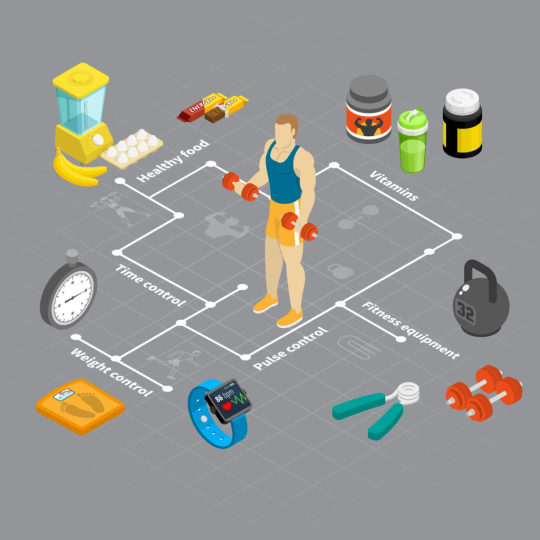
by naturtune
Sports nutrition plans can be complicated, but they don't have to be. In this section, we'll walk you through the steps of creating your own sports nutrition plan.
First things first: Calculate your caloric needs. To do this, you need to know how many calories you burn each day and how much weight loss or gain is appropriate for your goals (if any).
If you're trying to lose weight, aim for a deficit of 500-1,000 calories per day; if not losing weight is important for health reasons or competition regulations require it (like in bodybuilding), then aim for no more than a 100 calorie surplus per day.
Next up is macronutrient goals--that is, how much protein (and carbs/fats) should make up those daily totals? Studies show that athletes who eat high-protein diets have lower injury rates than those who don't eat enough protein; however there's no evidence that eating more carbs leads directly into better performance during exercise so long as total energy intake remains adequate throughout training sessions without causing excessive fatigue afterwards due either too little sleep due lack thereof beforehand which could cause poor performance later on down line when game time comes around again!
Finally comes meal planning around training schedules: How often should I eat during practice sessions? How many hours before an event should I eat last meal before competing begins? What foods should I avoid during certain times since some may cause stomach upset due too much fiber content which could lead nausea later down line if eaten too close proximity prior..
Sports Nutrition Strategies for Specific Goals

by naturtune
If you're looking for advice on how to achieve a specific goal, like building muscle or improving endurance, we've got you covered. Our experts offer targeted advice for readers who have specific goals in mind.
- Build Muscle: For those who want to build muscle and strength, the best nutrition strategies include eating enough calories and protein while also taking advantage of supplements like creatine monohydrate and branched-chain amino acids (BCAAs). Check out our guide on how much protein is right for you here!
- Lose Weight: If your goal is weight loss, it's important that you focus on eating fewer calories than what your body needs each day. You can do this by eating smaller portions of food throughout the day or cutting out certain foods altogether--like sugars and fats--in order to reduce caloric intake overall without feeling hungry all day long!
Common Sports Nutrition Myths Debunked

by naturtune
While there are many myths about sports nutrition, the following are some of the most common.
- Myth: Athletes need massive amounts of protein.
- Fact: You don't need to eat more protein than you already do in order to build muscle or lose weight. In fact, eating too much can actually be harmful because it can put stress on your kidneys and liver, which may result in kidney stones or other health problems over time. If you're trying to lose weight by restricting calories (as opposed to exercising), then it's important that you get at least 0.8 grams per pound (or 1 gram per kilogram) each day--and if you exercise regularly then this should increase slightly so that your muscles can recover properly after workouts without having any deficiencies due to lack of nutrients like amino acids.
The Role of Supplements in Sports Nutrition
Sports supplements are a popular way to improve your health and performance, but they're not for everyone. If you're considering taking supplements, keep in mind that they're not regulated by the FDA like food is. This means you should always do your research before buying anything.
A good place to start is by reading reviews from other users of particular brands or types of products--you can find these on websites like Amazon or Bodybuilding.com (which has an entire section dedicated to supplements). You'll also want to read up on any potential side effects or interactions with other medications you might be taking; this information will typically be listed on the label as well as online. Once you've decided which supplement(s) might work best for your needs, talk with a doctor first if possible so they can help determine whether there are any issues with taking them at all!
Conclusion
In this article, we've covered the following:
- The importance of proper nutrition for sports performance.
- How to maximize your performance by eating the right foods at the right time.
- The best supplements for enhancing your physical and mental health.
If you're looking to improve your game and reach new heights in your sport, then follow these tips and tricks! We'll see you next time on naturtune.
Read the full article
1 note
·
View note
Text
Processed Foods And Inflammation: What You Need To Know
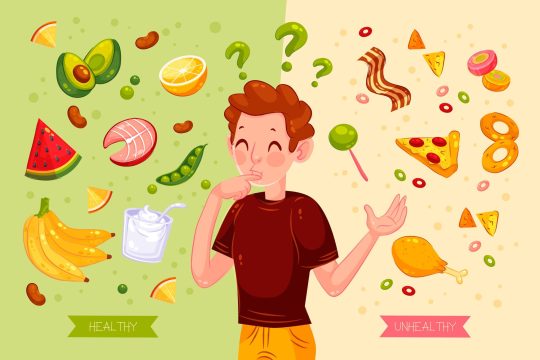
which food cause inflammation
Inflammation is a natural response of the body to infection injury, but a variety of such heart disease diabetes, and. One of the major causes of inflammation is our diet. Processed foods that are high in sugar, salt, and unhealthy fats are the major culprits. In this article, we'll explore the top 10 foods that cause inflammation and how to avoid them.
What is Inflammation and How Does Diet Play a Role?

Inflammation is a natural process that occurs in the body when it is injured or infected. It is the body's way of protecting itself from harm. However, when inflammation becomes chronic, it can lead to various health problems. Your diet plays a significant role in inflammation. Certain foods can trigger inflammation in the body while others can help fight it.
Top 10 Foods That Cause Inflammation & How to Identify Them
- Sugar: Consuming too much sugar can cause inflammation in the body. It can also increase the risk of obesity, type 2 diabetes, and heart disease.
- Processed Meat: Processed meats such as bacon, hot dogs, and sausages are high in saturated fats and salt, which can cause inflammation.
- Fried Foods: Fried foods are high in trans fats, which can cause inflammation and increase the risk of heart disease.
- Margarine: Margarine is high in trans fats, which can cause inflammation and increase the risk of heart disease.
- Refined Carbohydrates: Refined carbohydrates such as white bread, pasta, and rice are high in sugar and can cause inflammation.
- Dairy Products: Dairy products can cause inflammation in people who are lactose intolerant or sensitive to casein, a protein found in milk.
- Alcohol: Consuming too much alcohol can cause inflammation in the body and increase the risk of liver disease.
- Artificial Sweeteners: Artificial sweeteners such as aspartame and saccharin can cause inflammation in the body.
- Vegetable Oils: Vegetable oils such as corn, sunflower, and soybean oil are high in omega-6 fatty acids, which can cause inflammation when consumed in excess.
- Processed Snacks: Processed snacks such as chips, crackers, and cookies are high in sugar, salt, and unhealthy fats, which can cause inflammation in the body.
The Health Benefits of Eating an Anti-Inflammatory Diet
An anti-inflammatory diet is one that includes foods that help fight inflammation in the body. It includes foods such as fruits, vegetables, whole grains, lean proteins, and healthy fats. An anti-inflammatory diet can help reduce the risk of chronic diseases such as heart disease, diabetes, and cancer
Foods That Help Fight Inflammation & the Best Ways to Include Them in Your Diet

by naturtune
- Fruits and Vegetables: Fruits and vegetables are high in antioxidants, which help fight inflammation in the body. Try to include a variety of colorful fruits and vegetables in your diet.
- Whole Grains: Whole grains such as brown rice, quinoa, and whole wheat bread are high in fiber and can help reduce inflammation in the body.
- Lean Proteins: Lean proteins such as chicken, fish, and tofu are high in nutrients that can help fight inflammation in the body.
- Healthy Fats: Healthy fats such as olive oil, avocado, and nuts are high in omega-3 fatty acids, which can help reduce inflammation in the body.
- Herbs and Spices: Herbs and spices such as turmeric, ginger, and garlic have anti-inflammatory properties and can be added to your meals to help fight inflammation.
How to Use Food as Medicine When Fighting Inflammation
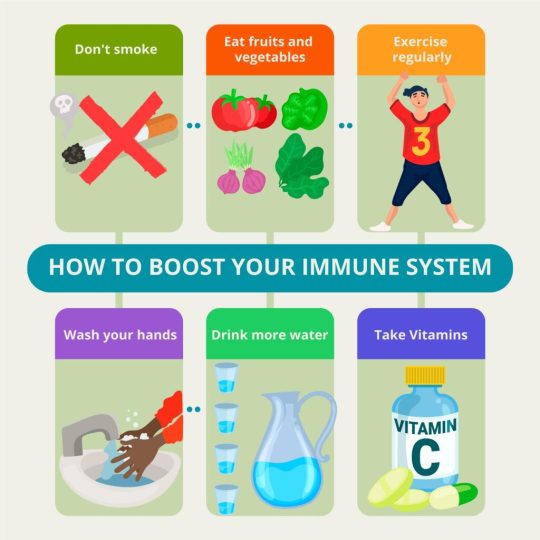
by naturtune
Food can be used as medicine to fight inflammation. Here are some tips on how to reduce inflammation naturally with food:
- Avoid processed foods that are high in sugar, salt, and unhealthy fats.
- Include a variety of colorful fruits and vegetables in your diet.
- Choose whole grains over refined grains.
- Choose proteins such as chicken, fish, and tofu.
- Incorporate healthy fats such as olive oil, avocado, and nuts into your diet.
- Add herbs and spices such as turmeric, ginger, and garlic to your meals to help fight inflammation.
conclusion
Take control of your health today by making small changes to your diet. Try incorporating more anti-inflammatory foods such as fruits, vegetables, whole grains, lean proteins, and healthy fats into your meals. Avoid processed foods and sugary snacks that can cause inflammation in the body. By taking these simple steps, you can help reduce inflammation and lower your of chronic diseases. Start today and feel the difference in your body!
I would recommend adding a comment below and sharing your thoughts on this topic. Have you experienced the negative effects of inflammation in your body? What changes have you made to your diet to combat inflammation? Let's start a conversation and help each other on our journey to better health!
Read the full article
0 notes
Text
How to Use Food to Overcome Depression and Anxiety

best brain supplements for adults
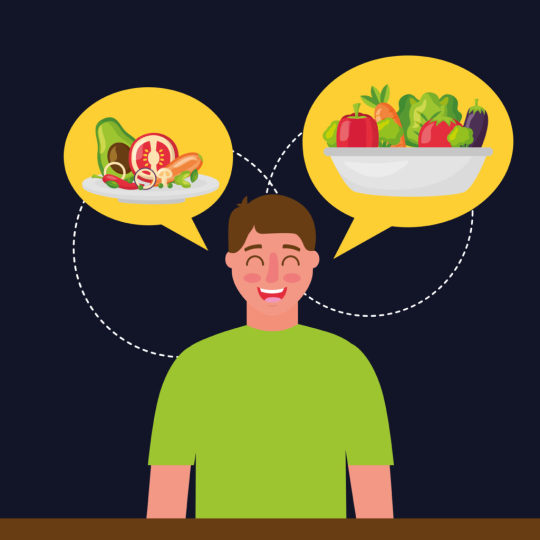
man thinking plates healthy food vector illustration
As someone who has struggled with depression and anxiety for years, I understand just how difficult it can be to find effective ways to manage these conditions. While therapy and medication can certainly be helpful, I've found that one of the most powerful tools in my mental health arsenal is the food I eat. In this article, I'll share with you the science behind how food can affect your mood and mental health, as well as some of the best brain supplements for adults and foods to incorporate into your diet for improved mental health.
Understanding Depression and Anxiety
Before we dive into how food can help improve mental health, it's important to have a basic understanding of what depression and anxiety are. Depression is a mood disorder characterized by feelings of sadness, hopelessness, and a loss of interest in activities that were once enjoyable. Anxiety, on the other hand, is a condition that causes excessive worry or fear about everyday situations. Both depression and anxiety can have a significant impact on a person's quality of life, and can even lead to serious physical health problems if left untreated.
The Science Behind Food and Mental Health
So, how exactly can food help improve mental health? There are a few different mechanisms at play.
First, certain nutrients found in food can directly affect the levels of neurotransmitters in the brain that regulate mood and anxiety. For example, omega-3 fatty acids found in fatty fish like salmon have been shown to increase levels of serotonin, a neurotransmitter that plays a key role in regulating mood. Additionally, the gut-brain connection is becoming increasingly understood, with research indicating that the health of our gut microbiome can have a significant impact on our mental health.
The Best Brain Supplements for Adults
In addition to getting the right nutrients from food, certain brain supplements can help manage depression and anxiety. One of the most well-known is St. John's Wort, a plant-based supplement that is as effective as prescription antidepressants for mild to moderate depression. Another supplement that has gained popularity in recent years is ashwagandha, an adaptogenic herb that has been shown to reduce symptoms of anxiety and stress. It's important to note, however, that not all supplements are created equal, and it's always a good idea to consult with a healthcare professional before starting any new supplement regimen.
Foods to Avoid for Improved Mental Health
While certain foods can help improve mental health, there are also some that should be avoided. One of the biggest culprits is sugar, which has been shown to hurt mood and increase symptoms of anxiety and depression. Processed foods, which often contain high levels of sugar and unhealthy fats, are also best avoided. Finally, caffeine and alcohol can both have negative effects on mood and should be consumed in moderation.
Foods to Incorporate Into Your Diet for Improved Mental Health
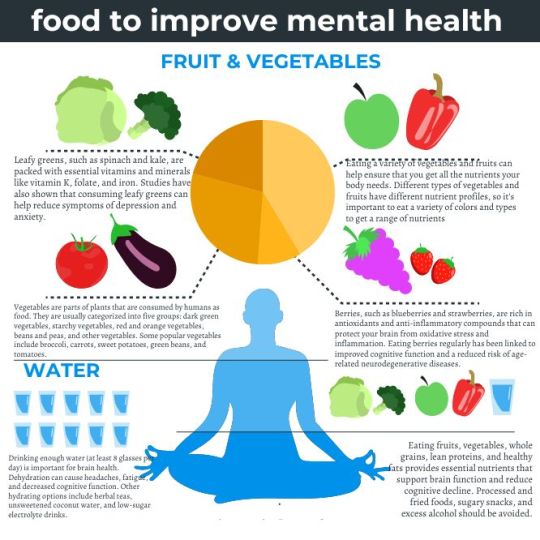
by naturtune
So, what should you be eating to improve your mental health? One of the best things you can do is focus on whole, nutrient-dense foods. Some of the best options include:
- Fatty fish like salmon or tuna, which are rich in omega-3 fatty acids
- Leafy greens like spinach and kale, which are high in folate
- Nuts and seeds, which contain healthy fats and magnesium
- Whole grains like brown rice and quinoa, which are high in B vitamins
- Fermented foods like sauerkraut and kimchi, can help support a healthy gut microbiome
Delicious Recipes for Mental Health

by naturtune
Incorporating these foods into your diet doesn't have to be bland. Here are a few delicious recipes to get you started:
- Salmon and quinoa bowl with roasted vegetables
- Spinach and feta omelet with whole grain toast
- Almond butter and banana smoothie with chia seeds
- Chickpea and vegetable curry with brown rice
- Greek yogurt and berry parfait with nuts and seeds
Mindful Eating Techniques for Mental Health
additionally, it is very important to focus on what you eat, and eat slowly. It is also important to stop and think about what you are eating. You can do that by using some mindful techniques.
Additional Lifestyle Changes to Improve Mental Health
the good thing is that not eating is not the only thing that does the job when it comes to managing depression and anxiety. Other lifestyle changes like staying fit, sleeping well, and practicing stress relieving techniques help too. It's a good idea to seek professional help if you are struggling with persistent symptoms of depression or anxiety.
Conclusion
In conclusion, the food we eat can have a significant impact on our mental health.
By incorporating nutrient-dense foods and brain supplements into our diet, avoiding foods that can exacerbate symptoms, and practicing mindful eating techniques, we can support our mental health and improve our overall well-being. If you're struggling with depression or anxiety, consider making some of these changes and seeking professional help if needed.
Don't forget to follow us for more information on improving your mental health through diet and lifestyle changes.
Read the full article
0 notes
Video
Watch this gluten-free diet video and discover the secrets to healthy nutrition! Click now to visit our website for more helpful diet tips and information. https://naturtune.com
0 notes
Text
keto diet free guide
Looking to get started on the keto diet? Then you need to read Ketoganic Mastery – a free book that will teach you everything you need to know about this popular eating plan. Written by a keto expert, this book will help you make the transition into ketosis, eat healthy foods, and lose weight fast. Claim your free copy today and start seeing results !
#diet#diets#low cal diet#lowcarb#low cal food#weight loss diet#keto#ketodiet#healthyfood#healthyeating#healthyvegan#veganfood#vegannutrition#vegancommunity
4 notes
·
View notes